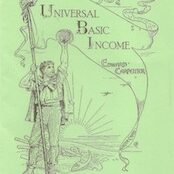BARRY WINTER reports on a conference to explore Labour’s lost decades, held on Rotherham on 19 March.
Andrew Gamble began by offering some opening pointers to Labour’s lost decades. First, the long Conservative hegemony which means that it has been in office for two-thirds of the last 90 years. Since 1918, the Conservatives have held office 11 times compared with Labour’s six.
Although Britain had the largest industrial working class, Labour has been out-competed electorally. Until more recently, the Tories were never out of office for more than six years. It meant that when they won an election they had an experienced set of politicians, unlike today’s government.
Since 1918, there have been three broad, long economic cycles with financial crises in 1931, 1949, 1976 and 2008. Labour was in government for each of these financial crises.
During the first period from 1918-45, we saw the ‘forward march of labour’, as the historian Eric Hobsbawn describes it. The labour movement grew in confidence and electoral support, marked by the triumph of the 1945 general election. Hobsbawm then identifies 1948-78 as the period when that march was ‘halted’. The 1980s saw the fracturing of the Labour Party and the formation of the SDP in 1983. Labour was out of office for 18 years.
This raises a number of questions:
- why Labour was so prone to divisions?
- why the party is associated with economic crises which have shaped its fortunes?
- why the Conservatives been so successful?
Progressive parties are caught between the hope and expectations of its supporters and the actuality of being in office, leading to disillusionment and recrimination. Such parties need to protect their core interests; to offer the politics of aspiration by reaching beyond their base; and to retain the politics of principle, holding on to certain values and ideas that define them. Failure in any of these areas creates a problem. Failure in all three is serious. Following past defeats, the Labour Party has suffered from heresy hunting although not on this most recent occasion.
Labour and similar parties have to offer both a politics of hope and to demonstrate their economic competence. This is a difficult time for social democratic parties in Europe. They are suffering from a shrinking working class base. And it should be remembered that Labour has never won more than half of the electorate. Today, all parties are minority parties; 35 per cent of the electorate does not vote.
There are also long-term trends that have to be taken into account: the processes of financialisation and individualism, plus the media’s influence. These have led to the dominance of fiscal conservatism, and social democracy is now faced with some difficult choices.
Andrew Gamble is professor of politics at the University of Cambridge and author of The Spectre at the Feast: Capitalist Crisis and the Politics of Recession.
This is part one of Barry Winter’s report. Click here to read part two, and here to read part three.
Harry Barnes’ report on the event can be read here.



11 October 2011
[…] me as being a useful one: What kills Labour governments? This was sparked for me by reading about Denis Macshane’s 31-51-81 conference, and his associated articles exploring why we were in opposition so long after our defeats. The […]
25 April 2011
[…] is part 3 of Barry Winter’s report. Click here to read part one, and here to read part […]
7 April 2011
[…] is part two of Barry Winter’s report. Click here to read part one. Tags: Financial crisis, Parliament, The Labour […]